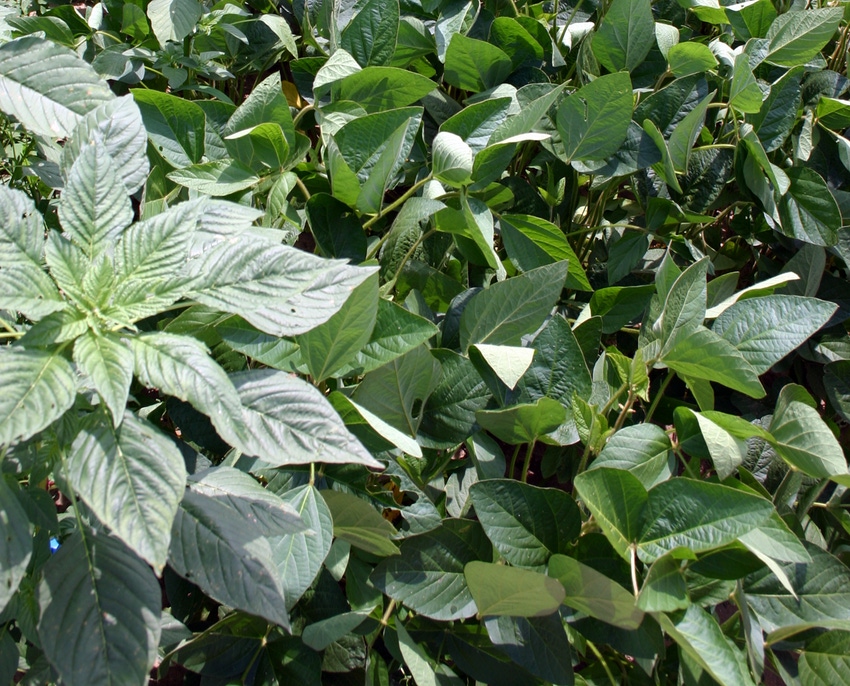
If yields and prices hold up, Mid-South cotton, corn and soybean farmers could be looking at a very profitable year. But after harvest, will their soils harbor yield-robbing seed from glyphosate-resistant Palmer pigweed in numbers that could significantly threaten profitability next year?
As you know, resistance has really thrown a wrench in what was a perfectly good weed control program — Roundup Ready technology. Pace Hindsley, a Marvell, Ark., cotton producer, who is fighting resistant pigweed on his farm, realizes this all too well.
“Back in 1996, glyphosate would kill anything. Farmers took advantage of the technology and started expanding acres. During that time, not many companies were putting a lot of money into developing new chemicals.”
When glyphosate stopped killing pigweed in the Mid-South, affected farmers were suddenly faced with cracks in their weed control programs. “It’s putting us in a huge financial bind,” said Hindsley, who recently discussed glyphosate-resistant pigweed on ABC’s Nightly News.
Much of financial bind is coming from hand-hoeing pigweed. Driving through the Delta fields these days, you might think you’ve stepped back in time, seeing these chopping crews working their way down the rows. Chopping crews are expensive, says Hindsley, costing as much as $50 or $60 an acre.
“The money we’re spending on control is our profit,” he says. “Plus yields are going down because of glyphosate-resistant pigweed. We’ve had to get labor from other parts of the country, there’s housing. It’s caused a tremendous amount of networking, organizing and expense to control it.”
It’s also ironic that hand-hoeing techniques have become somewhat of a lost art over the last decade or two, according to Ken Smith, University of Arkansas weed scientist. “We’ve had to actually train people on how to hoe cotton. You have to chop it below the adventitious buds on the stem or it will come back.”
Phillips County Extension agent Robert Goodson is just about worn out from helping farmers get rid of the sturdy weed. “I hate ’em,” he says.
Weed scientists have found solutions in research plots, but timing is crucial for success, something that is difficult to duplicate on large fields. Smith and other Mid-South weed scientists are urging Mid-South farmers to rethink weed control and shift their focus from controlling emerged weeds to controlling the spread and germination of seed.
Part of the education process will begin this fall, when Delta Farm Press and the University of Arkansas Cooperative Extension Service host the Pigweed Symposium, in Forrest City, Ark. Some top-notch weed scientists from all over the Mid-South will be discussing how glyphosate-resistant pigweed got here, and what can be done to manage it. Before your fall calendar gets too full, pencil in Nov. 17.
e-mail: [email protected]
About the Author(s)
You May Also Like






